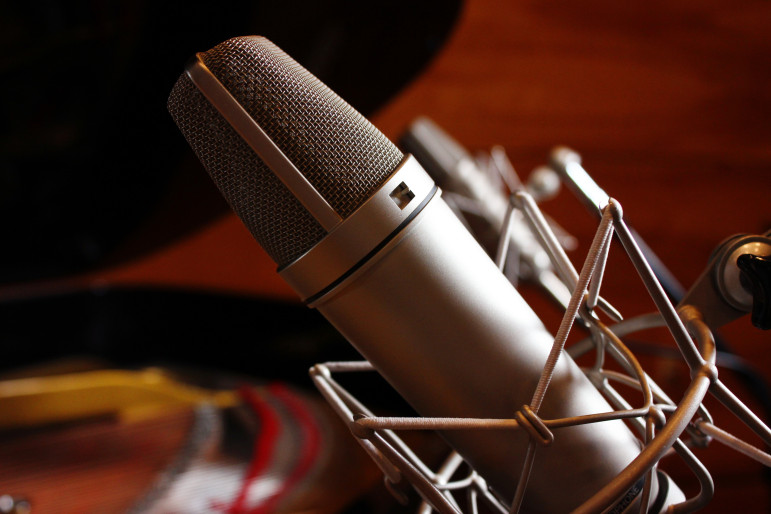A while back, I started a thread here of the WORST audio processing you've ever heard on a station. Now I'm curious to know your thoughts on what U.S. radio station you believe has the best audio processing.
-
Get involved.
We want your input!
Apply for Membership and join the conversations about everything related to broadcasting.
After we receive your registration, a moderator will review it. After your registration is approved, you will be permitted to post.
If you use a disposable or false email address, your registration will be rejected.
After your membership is approved, please take a minute to tell us a little bit about yourself.
https://www.radiodiscussions.com/forums/introduce-yourself.1088/
Thanks in advance and have fun!
RadioDiscussions Administrators
You are using an out of date browser. It may not display this or other websites correctly.
You should upgrade or use an alternative browser.
You should upgrade or use an alternative browser.
The BEST audio processing on a station.
- Thread starter RadioGuy1019
- Start date
Back in the 80s, the stations that had some of the best processing IMO included KWSS/San Jose, KZZP/Phoenix and KLUC/Las Vegas (all Nathionwide-owned), KWOD in Sacramento, KEZY in Anaheim and Hot 103/Hot 97 in New York. Honorable mention would go to stations like KIIS-FM, Z-100, Power 106 and Hot 97.7 in San Jose. They were almost as great sounding. You might find old airchecks and such online of these monster stations.
Back in the 70s, I'd have to give a hat-tip to (then) WSSH (99.5), Lowell/Lawrence, MA, They were what was then called Easy Listening. As Kelly A said, the BEST audio processing shouldn't be apparent to the listener -- true "transparent" sound.....
"Wish FM" certainly filled the bill here..... 99.5 is now Classical music (WCRB, formally 102.5).......
"Wish FM" certainly filled the bill here..... 99.5 is now Classical music (WCRB, formally 102.5).......
The ironic thing is now that we have audio processing capable of sounding nearly transparent and distortionless, a lot of the popular music recorded in the past 20-25 years sound as bad as FM radio processing did in the 1990s, even before a broadcast processor touches it.
The Colorado Public Radio outlets in Denver - KVOD (classical), KCFR (spoken word), KVOQ (AAA) - all have very transparent processing. KVOQ in particular has a punchy sound, a good balance between a consistent audio level and dynamic range, and is easy to listen to. KBCO (AAA) almost gets there but seems to have very little dynamic range and sounds just a bit flat. Boulder's KGNU seems comparable to the CPR stations though it's a bit noisy at my location.
In the San Francisco Bay Area - nobody, really. Almost everyone seems to hype their processing in one way or another. KALW comes closest to having reasonably transparent processing but audio levels aren't always consistent. The most tolerable processing there seems to come from the iHeart stations.
In the San Francisco Bay Area - nobody, really. Almost everyone seems to hype their processing in one way or another. KALW comes closest to having reasonably transparent processing but audio levels aren't always consistent. The most tolerable processing there seems to come from the iHeart stations.
I have to agree with this. Most stations around here sound pretty lousy, to be honest. Both in processing and in format.In the San Francisco Bay Area - nobody, really. Almost everyone seems to hype their processing in one way or another. KALW comes closest to having reasonably transparent processing but audio levels aren't always consistent. The most tolerable processing there seems to come from the iHeart stations.
iHeart 80s+ (aka KOSF 103.7 FM) sounds the best of the music stations, which isn't saying heaps as they don't often play anything particularly interesting (their playlist is pretty standard and repetitave; the reruns of Casey Kasem's AT40 are pretty good, though). 98.1 The Breeze (KISQ), also an iHeart station, sounds probably the worst of any station, since, as I've mentioned elsewhere, the standard analog signal sounds like it's being fed by a low bitrate MP3 Internet stream (even the standard, public stream sounds better!).
KCBS is probably one of the few that sounds tolerable, which is unfortunate because 98% of the time, there's little of interest there (it's all news, and most of that so-called news is actually rather boring).
c
This article explains NPR's signature sound, and the trick they use for avoiding the boomy "DJ voice":

 current.org
current.org

A top audio engineer explains NPR’s signature sound - Current
The crisp, bright tone comes from a particular microphone — and a few other elements.
 current.org
current.org
Funny thing is, since the pandemic hit, that "NPR sound" has been less consistent. When I'm in the studio hearing the raw network feed coming off the satellite, it's very easy to tell who's actually in the DC or California studios and who's working from a remote location.
I think the BBC sounds great for speech. Their processing combined with the quality of the feed to member affiliate stations makes the BBC sound like they are right in my studio in Alaska at KSKO.
As my friend, the recently retired DOE for NPR once told me: "Remember all that talk about maintaining the NPR sound? It's all B.S."Funny thing is, since the pandemic hit, that "NPR sound" has been less consistent. When I'm in the studio hearing the raw network feed coming off the satellite, it's very easy to tell who's actually in the DC or California studios and who's working from a remote location.
Too much processing is bad, but so is too little. Nixon refused to wear makeup in his first debate with JFK, and ended up looking pale and sickly on TV.I've always been of the opinion that audio processing is like make-up on a woman. If there's enough for you to tell it's there, then it's too much.
Again, if you can hear the processing, it's too much.Too much processing is bad, but so is too little. Nixon refused to wear makeup in his first debate with JFK, and ended up looking pale and sickly on TV.
Note: a half-dozen posts about Nixon's impeachment were removed. Political, and not related to broadcasting.
However, the comment about the 1960 debate where Nixon looked "sweaty and tired" is related to how TV affected elections. Yes, political. But about how radio and TV affect elections.
However, the comment about the 1960 debate where Nixon looked "sweaty and tired" is related to how TV affected elections. Yes, political. But about how radio and TV affect elections.
WFMT 98.7 Chicago. Announcers are in the room with you, as is the music.
thats how i feel about the BBC World Service announcers/anchors on the satellite feed.. they sound like they're in my studio in BFE Alaska and not actually in London!

